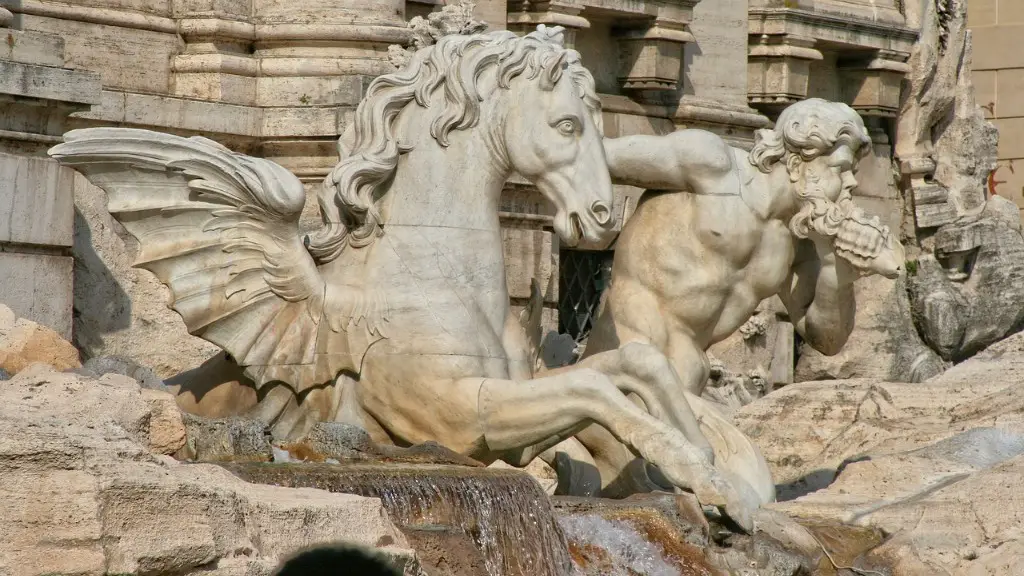The Origin of Jesus Christ in Ancient Rome
Scholars believe that the true identity of Jesus Christ, the central figure in Christianity, is unclear. Historians generally agree that Jesus was a real, living individual who lived in the 1st century CE during the rule of the Roman Empire. Evidence suggests that he was a Jewish rabbi who preached his apostles’ revolutionary teachings in multiple cities, usually in public places such as synagogues and along the Jordan River. His followers spread his perception of the kingdom of heaven, gaining a diverse audience and brief fame. However, many of his contemporaries misunderstood his teachings, rejecting Jesus as the true messiah. Thus, Jesus and his teachings were denounced by the Roman elite, leading to the ultimate persecution and execution of Jesus Christ.
Jesus Christ as “The King of the Jews”
From the Gospel of John, Jesus is referred to as “the king of the Jews” or “king of Israel”. According to biblical passages, the Jewish people of Judea and Jerusalem had accepted him as the Messiah and awaited his return from the heavens. In the court of the Sanhedrin, or the Great Assembly, Jesus was charged with blasphemy for claiming to be the Son of God. Pilate, the Roman governor of Judea, was slow to declare a death sentence for Jesus, but eventually conceded to Jewish demands.
During his trial, Pilate inscribed a sign that was placed on the cross above Jesus, reading “Jesus of Nazareth, King of the Jews” in three different languages. This sign expressed Pilate’s decision to publicly humiliate Jesus by castigating him as the King of the Jews. Subsequently, the title “king of the Jews” was used to refer to Jesus both during his lifetime and after his death.
The Name “Christ” and Its Significance
The title “Christ” is derived from the Greek word “Christos” which means “the anointed one”. This Greek term was used to describe Jesus because many Christians believed that he had been anointed by God to bring salvation to mankind. The term “Christ” is sometimes used interchangeably with the term “Messiah”, which comes from the Hebrew word “Mashiach” meaning “anointed one” as well.
The title “Christ” came to identify Jesus during the apostolic period which began after his crucifixion. Although the term was originally Hebrew, it eventually became an English name after being translated into Latin and circulated throughout the Roman Empire. The title “Christ” began to gain prominence in Rome during the fourth century CE, when Constantine declared the Nicene Creed which stated that Jesus was the son of God and the messiah.
The Use of Jesus’ Name in Ancient Rome
Although Jesus was primarily referred to as the “king of the Jews” and “Christ” during his lifetime and in the early centuries of the Roman Empire, his name in its simplest form, Jesus, was not used throughout the Roman world. This is likely because his name was not an official title, but rather an English name which was translated into Latin. However, his prominence in Christianity gradually made his name far more well-known in Roman society.
Many scholars believe that in the early centuries after the death of Jesus, his name became more prominent with the spread of the Christian gospels. As more people embraced Christianity, the name Jesus grew in popularity in the Roman Empire. By the fourth century CE, Jesus was widely known as the central figure of Christianity. At this time, his name was commonly uttered in Rome as well as in many of the cities of the Roman Empire.
The Spread of Jesus’ Teachings in Ancient Rome
During his lifetime, Jesus preached his revolutionary teachings in numerous cities throughout the Roman Empire. Although his teachings were at times misunderstood, they had a profound impact on Rome. Jesus’ teachings of love, peace, and brotherhood were a stark contrast to the Roman ideals of conquest and subjugation. This, combined with the fact that Jesus was ultimately executed by the Roman elite, helped to change the perspective of many in the Roman Empire.
The teachings of Jesus eventually spread beyond the borders of the Roman Empire. His beliefs, combined with Greek and Roman philosophy, slowly became the basis for the development of modern Christianity. As Christianity slowly grew in popularity in Rome, religion became a source of hope and strength during uncertain times. Although the Roman government continued to actively persecute Christians, more and more people began to embrace Christianity, eventually leading to its acceptance as the official religion of the Roman Empire.
The Impact of Jesus’ Teachings on Modern Rome
Jesus’ teachings continue to have an immense influence on modern Rome, even after two thousand years. His message of love, acceptance, and peace reverberates through the city and its people. Many of the central principles of Christianity, such as faith, justice, and unity, are still visible in the streets of Rome. These principles have allowed for modern Rome to be a beacon of hope and progress in the world.
The legacy of Jesus has also been visible in Roman history and culture. Jesus’ teachings inspired many of the reformers in the Roman Catholic Church, such as St. Augustine and St. Thomas Aquinas. His name is often invoked when referring to moral goodness, and even in times of crisis, many people turn to Jesus for comfort. In this way, Jesus is still present in modern Rome.
Conclusion of Jesus’ Role in Ancient Rome
The legacy of Jesus Christ in ancient Rome is undeniable. He was originally known as the “king of the Jews” and ultimately became known as “Christ”, which is the Greek term for the “anointed one”. He preached his revolutionary teachings of brotherhood, acceptance and love throughout the cities of the Roman Empire. Although his teachings were initially met with hostility, they eventually spread to the far corners of the Roman Empire, and they continue to be present in Rome today. Jesus remains a powerful spiritual figure in modern Rome, and he is often invoked in times of crisis and in the pursuit of moral goodness.



